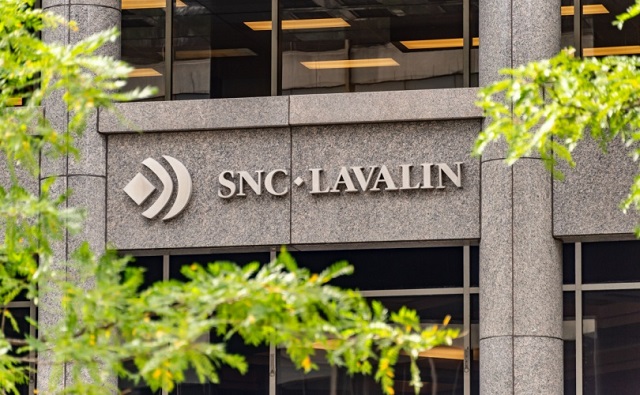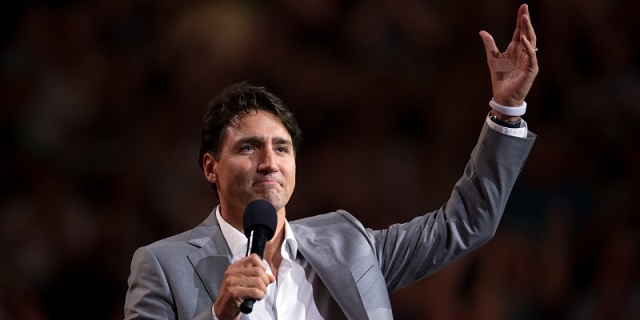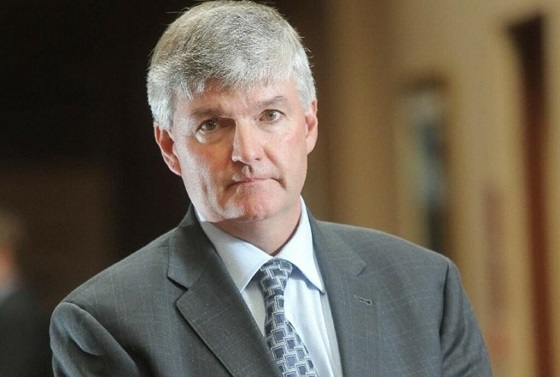Taxpayers
Police admit Canadian bribery scandal was nixed without talking to Trudeau, reviewing records

From LifeSiteNews
The Royal Canadian Mounted Police believed there was political pressure to dismiss a government bribery case against engineering firm SNC-Lavalin in 2019 but claimed there was insufficient evidence to proceed.
The Royal Canadian Mounted Police (RCMP) confirmed that it never talked with Prime Minister Justin Trudeau or was able to view secret cabinet records before dismissing charges in a bribery scandal involving the large engineering firm SNC-Lavalin.
The RCMP’s admission came after intense questioning before the House of Commons ethics committee late last month.
As per Blacklock’s Reporter, RCMP commissioner Michael Duheme testified, “No one is above the law,” adding that there was “insufficient evidence to proceed” with the investigation.
In a 2021 memo titled RCMP Assessment Report: Obstruction of Justice SNC-Lavalin Affair obtained from Access to Information requests last October by Democracy Watch, the RCMP noted that it did not doubt there was indeed political pressure to stop criminal prosecution of SNC-Lavalin.
“However, for it to be an offence under the Criminal Code, there must be more than a technical violation,” the 2021 memo read.
During the House of Commons ethics committee meeting in February, Duheme said he had considered the SNC-Lavalin case routine, noting, “We approach every investigation in the same manner.”
Staff Sergeant Frédéric Pincince, who serves as a director of investigations, admitted that the RCMP never questioned Trudeau in the SNC-Lavalin case but gave no reason.
“He was not interviewed,” testified Pincince, to which Conservative MP Larry Brock asked, “Was there at least an attempt to interview Justin Trudeau?”
“No,” Pincince replied.
SNC-Lavalin, which now goes by the name “AtkinsRéalis,” in 2019 pleaded guilty to fraud in a Québec Provincial Court and was hit with a $280 million fine. Company executives also admitted that they had paid $47.7 million in bribes to get contracts in Libya.
In October 2023, Canadian Liberal MPs on the ethics committee voted to stop the RCMP from testifying about the SNC-Lavalin bribery scandal.
In June 2023, LifeSiteNews reported that the RCMP denied it was looking into whether Trudeau and his cabinet committed obstruction of justice concerning the SNC-Lavalin bribery scandal.
SNC-Lavalin was faced with changes of corruption and fraud concerning about $48 million in payments made to Libyan government officials between 2001 and 2011. The company had hoped to be spared a trial and prosecution deferred prosecution agreement.
However, then-Attorney General Jody Wilson-Raybould did not go along with Trudeau’s plan, which would have allegedly appeared to help SNC-Lavalin. In 2019, she contended that both Trudeau and his top Liberal officials had inappropriately applied pressure on her for four months to directly intervene in the criminal prosecution of Montreal-based global engineering firm SNC-Lavalin relating to its scandal involving corruption and bribery charges connected to government contracts it once had in Libya.
Commissioner mum on whether there was ‘reluctance’ to charge a sitting PM
During the ethics committee meeting, Brock asked Duheme if there was an “overall general reluctance in charging a sitting Prime Minister?”
“I would say to that, we follow the evidence and if the evidence warrants charges, we charge,” Duheme replied.
Brock then asked if the RCMP obtained “all relevant documents to further the investigation?”
Duheme admitted that “we were limited with the information that we had access to.”
Brock pressed him, asking, “Is that a yes or no, sir?” to which Duheme replied, “I don’t know,” adding, “We didn’t know.”
“We don’t know, we still don’t know to this day all the information that is out there,” Duheme responded.
Brock then pressed Duheme, asking why the RCMP did not “exercise its absolute statutory right under the Criminal Code to obtain a production order or search warrant from a justice to obtain those cabinet documents?”
Duheme said the RCMP were not “able to obtain enough information or evidence.”
As for the initial investigation concerning SNC-Lavalin, Wilson-Raybould testified in early 2019 to Canada’s justice committee that she believed she was moved from her then-justice cabinet posting to veterans’ affairs due to the fact she did not grant a request from SNC-Lavalin for a deferred prosecution agreement rather than a criminal trial.
Of note is that a criminal conviction would have banned the company from landing any government contracts for 10 years.
Trudeau flat-out denied it was being investigated by the RCMP.
Less than four years ago, Trudeau was found to have broken the federal ethics laws, or Section 9 of the Conflict of Interest Act, for his role in pressuring Wilson-Raybould.
On February 12, 2019, Wilson-Raybould resigned from her veterans’ affairs post and Treasury Board president Jane Philpott quit in March 2019. They both cited a lack of confidence in the Liberal government’s handling of the scandal.
Then, in April 2019, Trudeau turfed Wilson-Raybould and Philpott from his caucus, meaning they were no longer part of the Liberal Party.
Business
Taxpayers criticize Trudeau and Ford for Honda deal

From the Canadian Taxpayers Federation
Author: Jay Goldberg
The Canadian Taxpayers Federation is criticizing the Trudeau and Ford governments to for giving $5 billion to the Honda Motor Company.
“The Trudeau and Ford governments are giving billions to yet another multinational corporation and leaving middle-class Canadians to pay for it,” said Jay Goldberg, CTF Ontario Director. “Prime Minister Justin Trudeau is sending small businesses bigger a bill with his capital gains tax hike and now he’s handing out billions more in corporate welfare to a huge multinational.
“This announcement is fundamentally unfair to taxpayers.”
The Trudeau government is giving Honda $2.5 billion. The Ford government announced an additional $2.5 billion subsidies for Honda.
The federal and provincial governments claim this new deal will create 1,000 new jobs, according to media reports. Even if that’s true, the handout will cost taxpayers $5 million per job. And according to Globe and Mail investigation, the government doesn’t even have a proper process in place to track whether promised jobs are actually created.
The Parliamentary Budget Officer has also called into question the government’s claims when it made similar multi-billion-dollar handouts to other multinational corporations.
“The break-even timeline for the $28.2 billion in production subsidies announced for Stellantis-LGES and Volkswagen is estimated to be 20 years, significantly longer than the government’s estimate of a payback within five years for Volkswagen,” wrote the Parliamentary Budget Officer said.
“If politicians want to grow the economy, they should cut taxes and red tape and cancel the corporate welfare,” said Franco Terrazzano, CTF Federal Director. “Just days ago, Trudeau said he wants the rich to pay more, so he should make rich multinational corporations pay for their own factories.”
Business
Federal government’s ‘fudget budget’ relies on fanciful assumptions of productivity growth

From the Fraser Institute
By Niels Veldhuis and Jake Fuss
Labour productivity isn’t growing, it’s declining. And stretching the analysis over the Trudeau government’s time in office (2015 to 2023, omitting 2020 due to COVID), labour productivity has declined by an average of 0.8 per cent. How can the Trudeau government, then, base the entirety of its budget plan on strong labour productivity growth?
As the federal budget swells to a staggering half a trillion dollars in annual spending—yes, you read that correctly, a whopping $538 billion this year or roughly $13,233 per Canadian—and stretches over 430 pages, it’s become a formidable task for the media to dissect and evaluate. While it’s easy to spot individual initiatives (e.g. the economically damaging capital gains tax increase) and offer commentary, the sheer scale and complexity of the budget make it hard to properly evaluate. Not surprisingly, most post-budget analysts missed a critically important assumption that underlies every number in the budget—the Liberals’ assumption of productivity growth.
Indeed, Canada is suffering a productivity growth crisis. “Canada has seen no productivity growth in recent years,” said Carolyn Rogers, senior deputy governor at the Bank of Canada, in a recent speech. “You’ve seen those signs that say, ‘In emergency, break glass.’ Well, it’s time to break the glass.”
The media widely covered this stark warning, which should have served as a wake-up call, urging the Trudeau government to take immediate action. At the very least, this budget’s ability—or more accurately, inability—to increase productivity growth should have been a core focus of every budget analysis.
Of course, the word “productivity” puts most people, except die-hard economists, to sleep. Or worse, prompts the “You just want us to work harder?” questions. As Rogers noted though, “Increasing productivity means finding ways for people to create more value during the time they’re at work. This is a goal to aim for, not something to fear. When a company increases productivity, that means more revenue, which allows the company to pay higher wages to its workers.”
Clearly, labour productivity growth remains critical to our standard of living and, for governments, ultimately determines the economic growth levels on which they base their revenue assumptions. With $538 billion in spending planned for this year, the Trudeau government better hope it gets its forecasts right. Otherwise, the $39.8 billion deficit they expect this year could be significantly higher.
And here’s the rub. Buried deep in its 430-page budget is the Trudeau government’s assumption about labour productivity growth (page 385, to be exact). You see, the Liberals assume the economy will grow at an average of 1.8 per cent over the next five years (2024-2028) and predict that half that growth will come from the increase in the supply of labour (i.e. population growth) and half will come from labour productivity growth.
However, as the Bank of Canada has noted, labour productivity growth has been non-existent in Canada. The Bank uses data from Statistics Canada to highlight the country’s productivity, and as StatsCan puts it, “On average, over 2023, labour productivity of Canadian businesses fell 1.8 per cent, a third consecutive annual decline.”
In other words, labour productivity isn’t growing, it’s declining. And stretching the analysis over the Trudeau government’s time in office (2015 to 2023, omitting 2020 due to COVID), labour productivity has declined by an average of 0.8 per cent. How can the Trudeau government, then, base the entirety of its budget plan on strong labour productivity growth? It’s what we call a “fudget budget”—make up the numbers to make it work.
The Trudeau fudget budget notwithstanding, how can we increase productivity growth in Canada?
According to the Bank of Canada, “When you compare Canada’s recent productivity record with that of other countries, what really sticks out is how much we lag on investment in machinery, equipment and, importantly, intellectual property.”
Put simply, to increase productivity we need businesses to increase investment. From 2014 to 2022, Canada’s inflation-adjusted business investment per worker (excluding residential construction) declined 18.5 per cent from $20,264 to $16,515. This is a concerning trend considering the vital role investment plays in improving economic output and living standards for Canadians.
But the budget actually hurts—not helps—Canada’s investment climate. By increasing taxes on capital gains, the government will deter investment in the country and encourage a greater outflow of capital. Moreover, the budget forecasts deficits for at least five years, which increases the likelihood of future tax hikes and creates more uncertainty for entrepreneurs, investors and businesses. Such an unpredictable business environment will make it harder to attract investment to Canada.
This year’s federal budget rests on fanciful assumptions about productivity growth while actively deterring the very investment Canada needs to increase living standards for Canadians. That’s a far cry from what any reasonable person would call a successful strategy.
Authors:
-

 Business2 days ago
Business2 days agoDon’t be fooled by high-speed rail
-

 Addictions2 days ago
Addictions2 days agoBritish Columbia should allow addicts to possess even more drugs, federal report suggests
-

 Alberta1 day ago
Alberta1 day agoAlberta rejects unconstitutional cap on plastic production
-

 Censorship Industrial Complex1 day ago
Censorship Industrial Complex1 day agoAustralian politicians attack Elon Musk for refusing to remove video of Orthodox bishop’s stabbing
-

 Also Interesting2 days ago
Also Interesting2 days agoIs the Anger Toward Fiat Currency Justified?
-

 Alberta2 days ago
Alberta2 days agoActivity-Based Hospital Funding in Alberta: Insights from Quebec and Australia
-

 Business2 days ago
Business2 days agoUN plastics plans are unscientific and unrealistic
-

 Fraser Institute2 days ago
Fraser Institute2 days agoCanadians should decide what to do with their money—not politicians and bureaucrats








